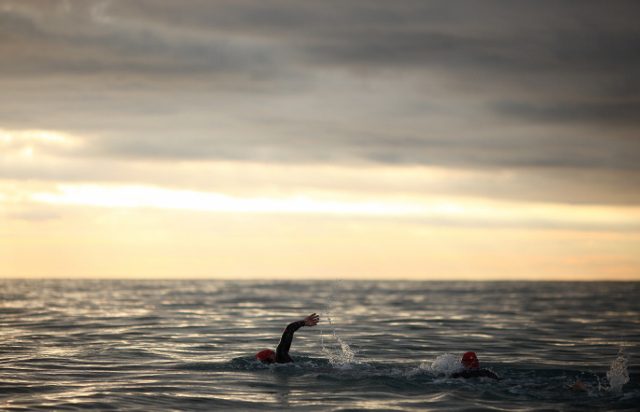Training tips from Melissa Hauschildt

 Melissa Hauschildt’s World Champion Training Tips
Melissa Hauschildt’s World Champion Training Tips
by Kerry Hale
Australia’s Melissa Hauschildt is about as humble as they come. Ask what exactly has catapulted her into triathlon royalty and she says: “A lot of hard work and determination.” For Hauschildt that begins with a strong core. She suggests three training sessions per week that focus on deep abdominals, obliques, glutes and hamstrings. “If you want to race triathlon well, you must have a strong core,” she explains. Twice weekly, she rounds out that core work with Bikram Yoga sessions. “It’s a great sweat, simulates hot race climates and provides added flexibility for all three disciplines.”
To get the most out of swim training, Hauschildt suggests finding a knowledgeable coach and spending ample time focusing on technique, including bilateral breathing and flip-turns. “Unlike Australia, in the U.S. most of the pools are only 25 yards, which means a lot of flip-turn practice.” She also swims open water twice-weekly, often relying on the friendly co-operation of faster swimmers whom she shadows for short, intense intervals. “I stay in their bubbles for as long as I can, then slow down and recover and then do it again.” Luckily for her, 2012 Ironman World Champion and noted swimmer, Pete Jacobs, lives nearby and is willing to pull her along, but she insists that finding a training partner who is even marginally faster than you can help you practice drafting techniques.
On the bike, Hauschildt enjoys training in the heat, in part to mimic hot race conditions. “Coming from Queensland, Australia, I am kind of used to the heat.” In fact, she asserts that when training or racing in cold conditions she must pay particular attention to calorie intake as she burns more fuel when her body “fights to warm up and function at high intensity.” As with the other disciplines, Hauschildt insists that variety in workouts is vital.
For the run, she stresses the importance of incorporating long runs, shorter high-quality efforts and tempo runs off the bike. “Most of my tempo runs are only about 20 to 30 minutes, but they play a key role in my race preparation,” says Hauschildt.
On injury prevention Hauschildt is adamant: “More is not better. Consistency is the key. Taking a day or two off is not going to cause you to lose all your fitness, but pushing through a small niggle can lead to serious injury and then months off. This is the greatest piece of advice I could give to anyone. As a runner I couldn’t miss a day. Missing a day to me meant losing fitness, ruining my routine, messing up my training diary. I was so obsessive that I turned small niggles that might have just needed a day’s rest into ongoing serious injuries that meant I missed entire seasons.”
